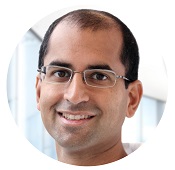Is the Next Generation ‘Weak’ or Do We Need Higher Standards for Ourselves?
Physicians who got their MDs decades ago bemoan the work ethic of doctors now in training. Maybe it’s time we learned to teach anew.

When professor Maitland Jones Jr, PhD, lost his position at New York University after students signed a petition complaining that his chemistry course—a prerequisite for med school—was too challenging, I was as fascinated by the reaction of my colleagues as I was by the specifics of the story. Who knew so many physicians could be this fired up about undergraduate education, bemoaning the dismissal of an organic chemistry professor as a microcosm of much that ails the world?
For me, this was even more personal because Dr. Jones taught me when I was in college. When I took his class three decades ago (last century, in fact), I clearly remember the heightened level of stress that was induced in many of my premed classmates when he chided the non-purists taking the class. Back then, I laughed at his jokes and recall thinking at the time that their stress was unnecessary (important sidenote: I wasn’t premed at the time). Yes, the class was challenging, but for me it was far less stressful. In retrospect, I think I should have tried to understand my fellow students’ perspectives a little better.
As an analogy, there is a famous and beautiful hike called Angels Landing in Zion National Park, Utah. Not for those with a fear of heights, at points the hiking path is just 3- to 4-feet wide with steep 2,000-plus foot drop-offs on either side. Walking on that path can be panic-inducing because a wayward step could lead to a fall with grave consequences. But ask any of us to walk the same path on flat ground, without veering more than a few feet, and we’d confidently walk across without hesitation. Doing something that is challenging—but without perceived consequences—is wholly different than doing the same thing while feeling that your life’s dream could vanish with a single misstep.
I have a lot more empathy for undergraduate and especially premed students today than I did when I took Dr. Jones’ class. Medical school is harder than ever to get into. Of course, my generation had it hard and we walked both ways uphill (in a snowstorm) to achieve what we did. But realistically, it’s much more difficult to get in now at every level than it was when we applied. Compound that with the constant reminders about healthcare worker burnout and it’s hard not to admire these students’ dedication to enter what is at best a highly uncertain professional track with an enormous opportunity cost of entry.
Perhaps it is because I also view the world through the lens of having both a junior and a freshman in college, but what this generation’s premed students have been through in their short time as young adults has no parallel with my own. And it’s not just the pandemic. These students have grown up in a post-9/11 era of uncertainty, participating in active shooter drills in schools and witnessing the erosion and abuse of basic human rights many of us thought were unassailable, through ugly and unstable political times, while seeing firsthand the looming disaster of unmitigated climate change all around them. To say that their hopes for the future are dimmer than mine 30 years ago would be a gross understatement. In medicine we compartmentalize, locking extraneous thoughts and fears deep inside so we can do our jobs effectively. This is something learned, by necessity, over years of practice, but not something it’s fair to expect a 20-year-old to do innately.
So why did so many physicians react so viscerally to the NYU students’ petition about the difficulty of the class, especially without knowing the full details—something that we are trained not to do in medicine? I suspect a lot of this comes from our own struggle to make sense of these unprecedented times, and our own trepidation as to what the future holds. Reflexively lashing out at the erosion of the high standards that made us physicians “stronger” and served to “weed out” the students who couldn’t make the grade in orgo is understandable when we have a hard time connecting with the changing world around us. But complaining “O tempora! O mores!” won’t necessarily make things better and is likely more than a little unfair. We should at least admit the possibility that these students had legitimate concerns about the way that Dr. Jones’ taught his course three decades after I first took it.
To me, this episode should remind us that the fundamental goal of teaching is to impart knowledge to the learner: if students aren’t “getting it,” then isn’t the teacher partly to blame? Yes, we should have high and aspirational standards, but if I created a test where my students were getting—as the New York Times reported—“single digit scores, and even zeros,” I would introspectively look at myself as hard as I would at the students getting those scores. One of the hallmarks of being a good physician (and far more essential than an understanding of organic chemistry) is to educate and convey our knowledge to others, especially to our patients and families but also to our trainees. If we are failing to do that effectively, we can’t simply give up on those we are trying to teach and accuse them of not trying.
Especially as teachers and communicators, we ourselves still must grow and learn.
That means remembering that especially as teachers and communicators, we ourselves still must grow and learn. Recently, while attending in the CCU, I realized that my group of trainees weren’t reading the daily manuscripts our fellow was emailing them. Rather than assuming this generation of students was “weaker” than my own or jumping to the conclusion that they don’t even have the inclination to read, I spent some time trying to understand how they learn most effectively and discovered that interactive learning and podcasts, for example, were more impactful. Moving forward, I decided that a more effective way of teaching the material would be to discuss the strengths/weaknesses of the primary literature rather than just emailing a reference and expecting my EPIC-burnt team to get on a computer to read these in their spare time.
Being a parent of undergraduate students of my own has helped me learn that while it is important to maintain high educational standards, I also need to put myself in my kids’ shoes to communicate more effectively with them. Without being overly paternalistic, I think that we as physicians need to do the same with our trainees and students who will eventually be our colleagues. This isn’t coddling; this is an attempt at understanding these remarkable individuals who want to enter our profession despite all the risks and downsides of doing so.
Some will decide this is a bridge too far, or say that people like me have grown too “soft.” Nonetheless, based upon my experience, I believe we do these trainees—our legacy—an immense disservice by assuming that they don’t want rigor in their lives. Careful probing will show that they are among the most resilient, inspiring, and caring individuals we will come across, and it behooves us to find the best ways to reach them. Just as we did long ago, they have, against considerable odds, dedicated their lives to the pursuit of a noble profession—with even lesser rewards expected for their sacrifice.
Off Script is a first-person blog written by leading voices in the field of cardiology. It does not reflect the editorial position of TCTMD.
Ajay Kirtane, MD, SM, is Professor of Medicine at Columbia University Irving Medical Center (CUIMC) and Director of the Cardiac…
Read Full BioDisclosures
- Kirtane reports personal consulting/honoraria/speakers bureau fees from Medtronic, Abbott Vascular, Boston Scientific, CSI, Siemens, Philips, ReCor Medical, Chiesi, OpSens, Zoll, and Regeneron, as well as institutional grant support/research contracts from Medtronic, Abbott Vascular, Boston Scientific, CSI, ReCor Medical, Chiesi, Amgen, Neurotronic, Biotronik, Bolt Medical; Magenta Medical, and Canon.


Comments